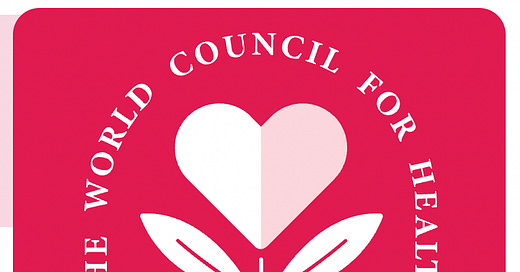Hugs don't infect, they protect
Research increasingly indicates the chemistry of love has a powerful protective effect against Covid-19. Here's how.
Christof Plothe DO, WCH Health & Science Lead
Welcome to our latest exploration of the fascinating intersection between science and our most profound human experiences. Today, we’re delving into the world of oxytocin, affectionately dubbed the ‘love hormone’. This neuropeptide is famed for its role in social bonding and emotional regulation, but recent research has thrown open the door to its potential implications in the fight against Covid-19 and Covid gene therapies.
So, what makes oxytocin so special?
Oxytocin protects you
Beyond fostering emotional connections—think hugs, cuddles, a compassionate smile or word and the warm fuzzies—oxytocin is emerging as a player in immune regulation. Preliminary research suggests that this little powerhouse may help suppress inflammatory responses. In the context of Covid-19, that could mean a reduction in the severity of symptoms and perhaps even a buffer against the consequences of Covid gene therapies.

Imagine a world where love is not just a feeling but a potential shield against virus-related inflammation.
Love in the time of Long Covid
As the world grapples with the long-term effects of Covid-19, commonly referred to as Long Covid, oxytocin is being scrutinized for its role in alleviating some of these symptoms. Some intriguing studies suggest that activities that promote oxytocin release—such as social interactions, physical touch, and even petting your dog—might offer protective benefits against the distress and chronic pain associated with Long Covid.

A balancing act: oxytocin and autoimmune responses
Research indicates that dysfunction in oxytocin levels could contribute to autoimmune diseases in those recovering from Covid-19. This revelation underscores the importance of maintaining an adequate balance of this hormone for a well-functioning immune system. In a time where immune health is paramount, oxytocin may be an unsung hero in our biological arsenal.
Oxytocin as a therapeutic agent?
Scientists are excitedly investigating the possibility of using oxytocin as a therapeutic agent against Covid-19. Its ability to modulate various immune pathways could pave the way for innovative treatments that harness the power of love—not just in the emotional sense, but as a tangible tool in our medical toolkit.
Love should come first, not last in public health discussions
Besides its role in social behavior and emotional health, emerging research suggests oxytocin may also hold significant implications for immune response and recovery in from Covid-19. So its emotional equivalent love is a protective force against the consequences of Covid-19 and the side effects of its ‘vaccines’.
This raises a thought-provoking question: given the historical context of social distancing and isolation measures, will those responsible for such policies reconsider their approach in the face of future pathogens? After all, love—both literally and metaphorically—should not be an afterthought in public health discussions.
As we navigate these challenging times, let’s remember the importance of connection, compassion, and yes, love. Whether it’s through a warm hug, a heartfelt conversation, or simply sharing a smile, let’s harness the power of oxytocin to foster resilience in ourselves and our communities.
Until next time, keep spreading the love—your immune system might just thank you for it!
Join the WCH #SpreadLove campaign!
Sources:
Wang SC, Wang YF. Cardiovascular protective properties of oxytocin against COVID-19. Life Sci. 2021 Apr 1;270:119130. Doi: 10.1016/j.lfs.2021.119130. Epub 2021 Jan 26. PMID: 33513400; PMCID: PMC7837104.
https://www.researchgate.net/publication/340865171_Oxytocin_as_a_potential_defence_against_Covid-_19
https://www.sciencedirect.com/science/article/pii/S1568997221002743
https://www.miamiherald.com/news/coronavirus/article242200466.html
If you find value in our work and have the means, please consider making a contribution to support the World Council for Health. Thank you.





You sound like a 1960's Hippie, Christof! Time for a "Love-in". Make love, not war!